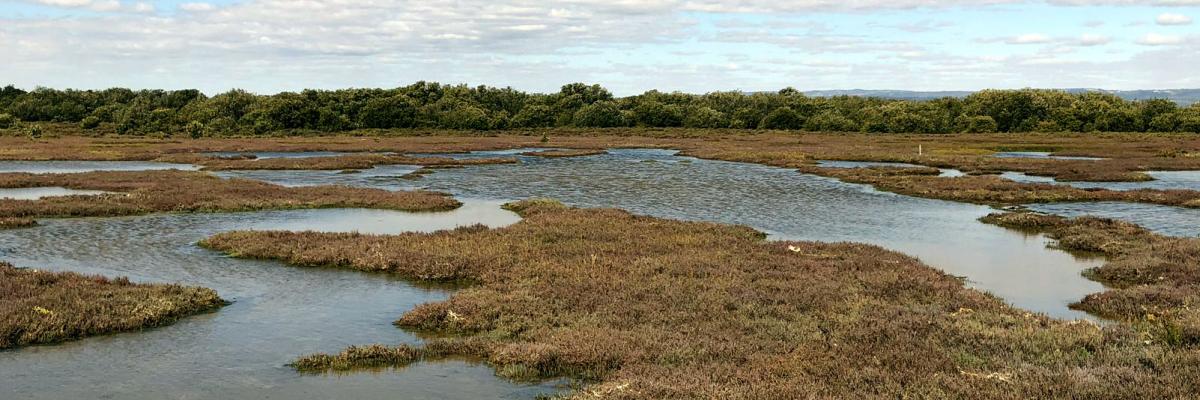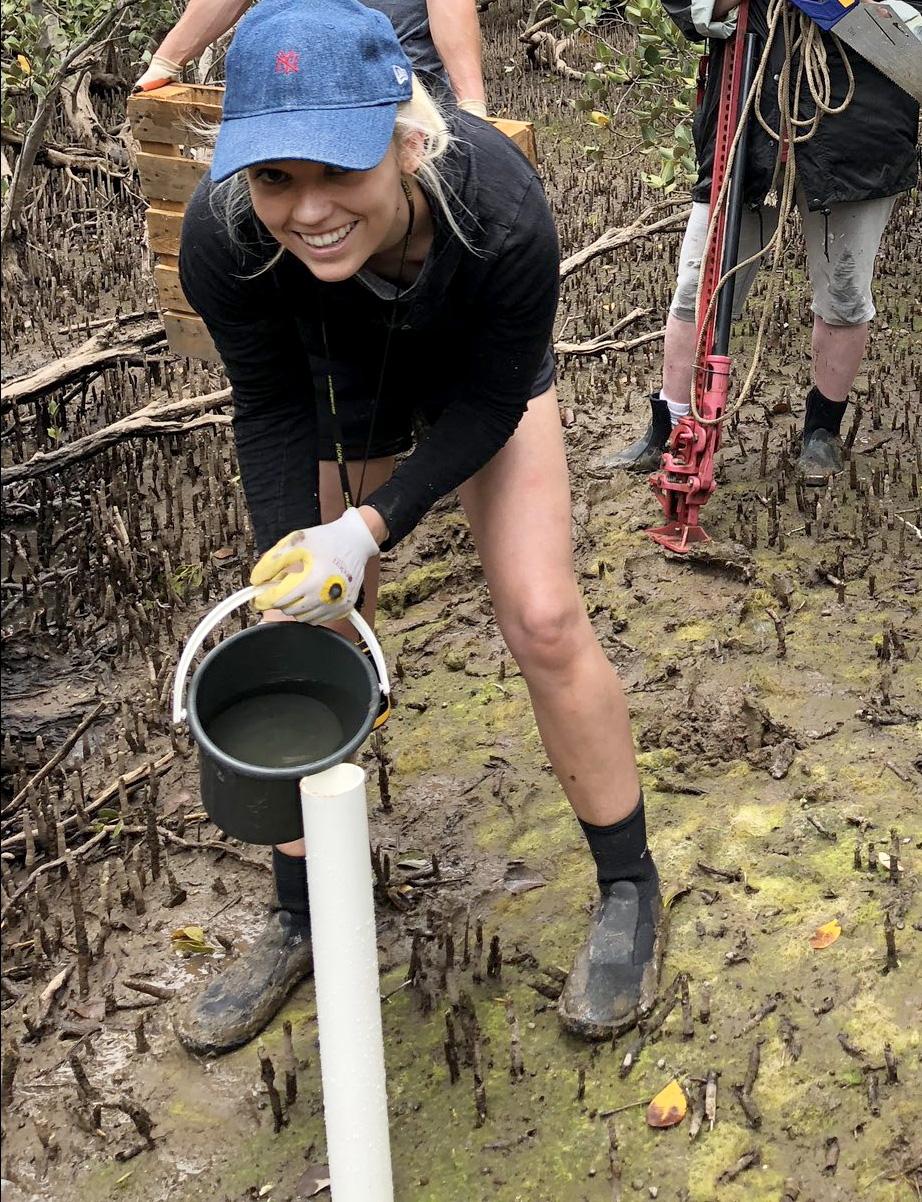A shore future for our coastal vegetation
Researchers are using new ways to gain genetic information from ocean sediment to determine the past and future survival of our coastal vegetation.
Through a multidisciplinary approach, School of Biological Sciences PhD candidate Nicole Foster is exploring environmental change in seagrass, mangroves and saltmarsh.
Her research has been buoyed by the prestigious The Max Day Environmental Science Fellowship Award.

“Coastal vegetation is extremely important both economically through supporting fisheries, stabilising coastlines and tourism, but also environmentally as they capture and sequester vast amounts of carbon,” says Nicole.

School of Biological Sciences PhD candidate Nicole Foster is exploring environmental change in seagrass, mangroves and saltmarsh.
“I am collecting and analysing sediment cores in order to assess how these vegetation communities have changed through time.”
Nicole is employing a multidisciplinary approach to the research by using isotopic analysis to date the sediment cores, and environmental DNA analysis to determine plant community composition.
“While environmental DNA has been applied to sediment samples in the past, we have developed novel methodologies to obtain genetic information from sediment that has not yet been trialled on any target organism, let alone plants,” she says.
“I hope to use this research to determine past changes to coastal vegetation communities and apply this to inform management strategies for the future.”
Testament to the multidisciplinary approach to this research, Nicole’s PhD is under the supervision of:
- botanist Professor Michelle Waycott;
- marine ecologist Professor Bronwyn Gillanders;
- quantitative ecologist Dr Alice Jones; and
- forensic scientist Dr Jennifer Young.
Watch the video
The Max Day Environmental Science Fellowship Award is named in honour of the late Dr Maxwell Frank Cooper Day AO FAA who spent a lifetime championing entomology, conservation and forestry, as well as helping other scientists. This video showcases the research of the two 2018 award recipients.
